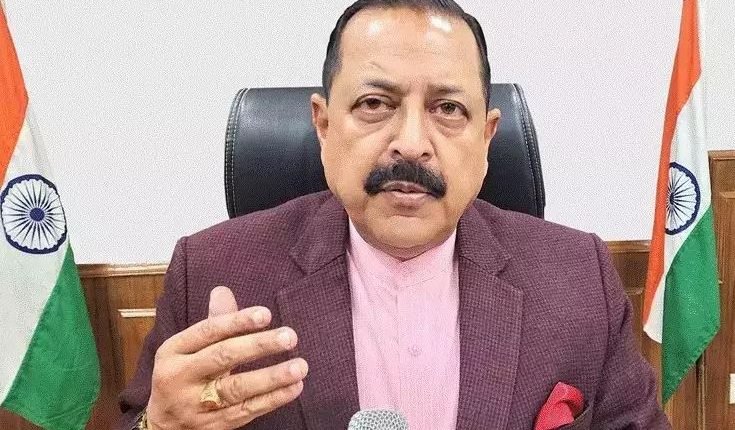Centre Plans IMD Regional Hub, Four New Radars to Boost J&K Weather Forecasting
Lithium Exploration in Reasi to Restart, Says Union Minister
Jammu, Sept 12: Union Minister Jitendra Singh on Friday acknowledged the scientific challenges in accurately forecasting earthquakes and cloudbursts but underlined that significant efforts are underway to study the contributing factors behind such natural disasters in order to develop early warning systems. Speaking to reporters at a Vartalap programme organised by the Press Information Bureau in Jammu, Singh explained that while precise prediction remains elusive, research on the conditions leading to cloudbursts has advanced.
“There is still no exact forecasting capability for earthquakes or cloudbursts, but we are carefully studying the contributing factors. Typically, when humidity and heat build up at a specific place, it creates explosive conditions that can trigger cloudbursts. If we can identify these triggers in real time, we will at least be able to issue possible early warnings,” Singh said.
He highlighted that the government has already launched special programmes such as the Himalayan Ecology Mission to gain deeper insights into these phenomena. Stressing the importance of modern infrastructure, Singh announced plans for a full-fledged IMD regional centre in Jammu, along with the installation of four additional weather radars across the Union Territory to strengthen forecasting capabilities and improve public preparedness.
Touching upon resource exploration, Singh referred to the discovery of lithium deposits in Reasi district and informed that the tendering process for exploration, which initially drew a poor response, will be relaunched. “Once exploration begins, we will know the actual quantum of lithium available. We do have specialised companies in India, but perhaps none came forward earlier. We will restart the process to tap this critical resource,” he stated.
The minister also spoke about India’s transformation into a global startup hub, noting that the number of registered startups had surged from just 350 in 2014 to over 1.5 lakh by 2025, making the country the world’s third-largest startup ecosystem. He specifically praised the success of the CSIR Aroma Mission in Jammu and Kashmir, which has created more than 3,000 lavender-based startups across rural India.
“These ventures are not only generating significant income but also creating jobs and transforming the lives of thousands of families. Jammu, with its climate and resources, has the potential to emerge as a major hub for the perfume industry if distillation facilities are established locally rather than outside the region,” Singh added.
On the subject of international collaboration, Singh pointed to his visit to Grasse in France, a globally renowned centre for perfumery. He said the aim was to learn from global best practices and integrate the private sector into efforts to add value to local products, particularly lavender, thereby boosting both domestic and export markets.
Concluding his address, Singh commended the media for playing a “transformative role” in highlighting the importance of science, technology, and environmental issues, which he said has helped in shaping public discourse and government priorities.




